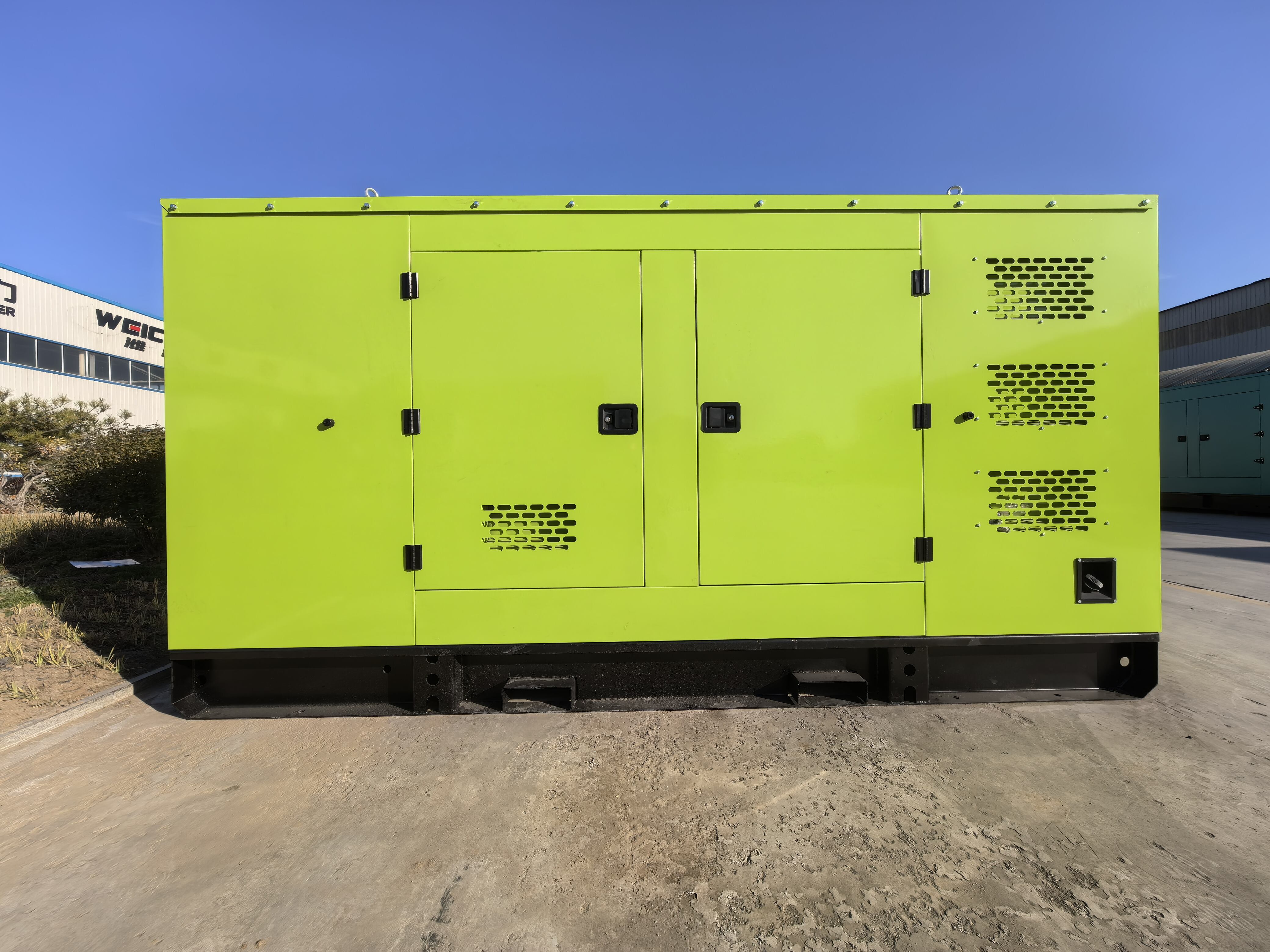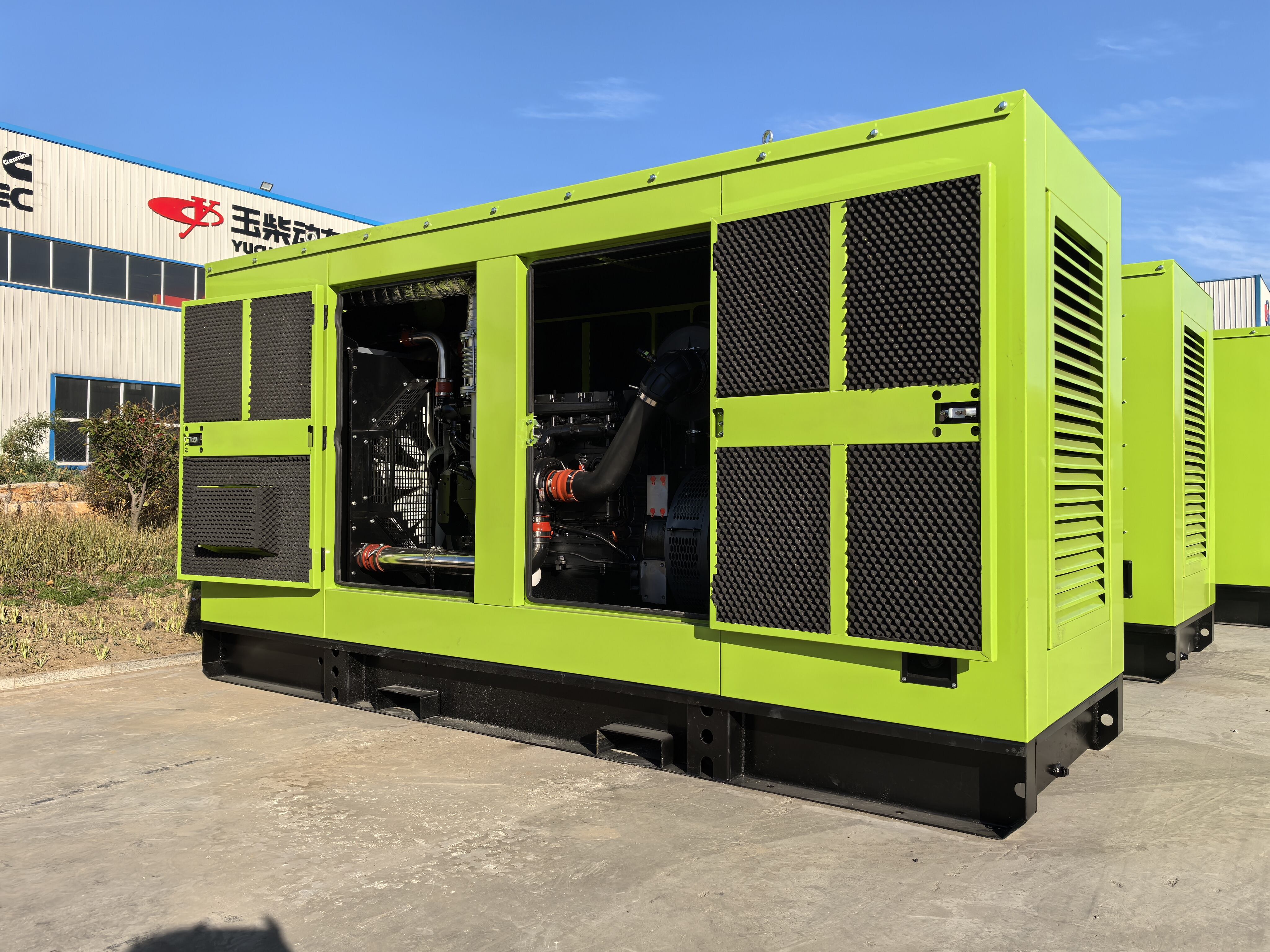How do silent diesel generators compare to regular diesel generators in terms of noise reduction?
Silent diesel generators have become increasingly popular in residential, commercial, and industrial applications because they effectively address one of the biggest drawbacks of traditional diesel generators: excessive noise. For many years, users relied on regular diesel generators for backup or continuous power supply, but their high noise levels often caused significant issues in both urban and rural settings. Silent diesel generators were developed as a solution to this problem, offering the same reliability and power output while dramatically lowering sound emissions. To understand the difference, it is essential to examine how silent diesel generators achieve noise reduction, the technology behind them, their applications, and how they compare to traditional models in efficiency and user experience.
The Noise Challenge with Regular Diesel Generators
Regular diesel generators, while robust and efficient in delivering power, often generate significant levels of noise due to their combustion process, exhaust systems, and vibrations. In many cases, the noise levels can range between 90 to 110 decibels, which is comparable to a motorcycle engine or a jackhammer. Prolonged exposure to such noise can cause discomfort, hearing problems, and even stress-related health issues. This has made regular diesel generators unsuitable for noise-sensitive environments like hospitals, schools, offices, residential areas, and events. As urban density increases and environmental noise regulations become stricter, the limitations of traditional generators have become more pronounced.
The Technology Behind Silent Diesel Generators
Silent diesel generators use a combination of engineering innovations to minimize noise while maintaining power output. One of the key features is the acoustic enclosure. This enclosure is usually made from sound-absorbing materials such as composite panels, which block and dampen noise. The enclosure fully encapsulates the generator’s engine and alternator, leaving only essential ventilation outlets.
Additionally, silent diesel generators incorporate advanced mufflers that reduce the sound of exhaust gases being expelled from the engine. The mufflers are often multi-chambered, designed to slow down and cool exhaust gases while breaking up sound waves. Engine mounts are another critical innovation. Instead of rigid connections, silent generators use vibration-dampening mounts that prevent vibrations from being transferred to the generator frame, reducing both noise and structural stress.
Cooling systems in silent diesel generators are also optimized for quiet performance. Instead of using high-speed fans that generate extra noise, these units often employ low-noise fans and airflow designs that ensure adequate cooling while maintaining a quieter operation. Together, these design improvements help reduce the noise output of silent diesel generators to as low as 60–75 decibels, which is similar to the sound of normal conversation or background office noise.
Comparing Noise Levels: Silent vs Regular Diesel Generators
The most obvious difference between silent diesel generators and their regular counterparts is the reduction in decibel levels. While regular diesel generators often operate at 90 decibels or higher, silent diesel generators typically range between 60 and 75 decibels, depending on the load and generator size. To put this into perspective, a drop of 10 decibels is perceived as roughly halving the loudness of sound to the human ear. This means that silent diesel generators can be three to four times quieter than traditional models.
This significant reduction makes silent diesel generators suitable for areas where noise control is critical. For example, in residential neighborhoods, noise restrictions often cap the maximum permissible sound levels. Silent generators comply with these requirements, ensuring users can enjoy reliable power without disturbing their surroundings. In hospitals, the lower noise levels help maintain a peaceful environment for patients. In construction sites located near residential areas, silent diesel generators ensure compliance with local noise ordinances.
Practical Applications of Silent Diesel Generators
Silent diesel generators have found widespread use in industries and environments where noise sensitivity is important. In the hospitality industry, hotels and resorts often rely on silent diesel generators to ensure uninterrupted service for guests without creating an intrusive environment. Similarly, in schools and universities, silent generators provide backup power while ensuring that learning activities are not disrupted by constant noise.
In events such as concerts, outdoor exhibitions, or weddings, silent diesel generators play a crucial role by powering equipment while blending into the background. They are also used in telecommunication sites where generators must run for long hours in populated areas without drawing attention. For residential users, a silent diesel generator provides peace of mind during power outages, allowing households to continue daily activities without the disturbance of loud mechanical noise.

Efficiency and Performance Comparison
Despite the focus on noise reduction, silent diesel generators do not compromise on performance. They are designed with the same efficiency and durability as regular diesel generators. In fact, some models are even more fuel-efficient because their optimized cooling and vibration-dampening systems reduce mechanical stress, extending the lifespan of the components. Regular diesel generators may be slightly cheaper to purchase initially, but the benefits of silent models in terms of comfort, compliance with regulations, and long-term usability often outweigh the initial cost difference.
Maintenance Considerations
One potential concern with silent diesel generators is maintenance accessibility. Because the components are enclosed within acoustic casings, routine maintenance such as oil changes, filter replacements, and inspections can require extra effort. However, most manufacturers design the enclosures with easy-access panels, making servicing straightforward. In contrast, regular diesel generators have fully exposed components, which may simplify maintenance but at the expense of higher noise output.
Long-Term Benefits of Silent Diesel Generators
Investing in silent diesel generators provides both immediate and long-term benefits. In the short term, they ensure compliance with environmental and residential noise standards. In the long term, they contribute to better community relations, healthier living environments, and greater comfort for users. Their reduced vibration also helps prolong the life of both the generator and the equipment it powers, offering improved reliability over time.
Conclusion
Silent diesel generators represent a significant improvement over regular diesel generators when it comes to noise reduction. By integrating soundproofing technologies, advanced mufflers, vibration-dampening mounts, and optimized cooling systems, they achieve decibel levels that are far more suitable for modern residential, commercial, and industrial applications. While they may require a higher initial investment and slightly more complex maintenance, their advantages in comfort, compliance, and long-term performance make them an increasingly popular choice. Compared to regular diesel generators, silent diesel generators strike the ideal balance between power and peace, ensuring reliable energy without unnecessary disruption.
FAQ
How much quieter are silent diesel generators compared to regular diesel generators?
Silent diesel generators typically operate between 60 and 75 decibels, while regular diesel generators can exceed 90 decibels. This difference makes silent models up to four times quieter to the human ear.
Are silent diesel generators more expensive than regular models?
Yes, silent diesel generators often have a higher initial cost due to their soundproofing technology and specialized enclosures. However, their benefits in terms of comfort and regulatory compliance justify the investment.
Do silent diesel generators require special maintenance?
Silent diesel generators require similar maintenance to regular ones, including oil changes and filter replacements. The only difference is that the acoustic enclosures may need to be opened for access, but most designs make this simple.
Can silent diesel generators be used in industrial applications?
Absolutely. Silent diesel generators are suitable for both residential and industrial use. They are widely used in construction, telecommunications, hospitality, and healthcare sectors where noise control is important.
Do silent diesel generators compromise on power output?
No, silent diesel generators provide the same power output and reliability as regular diesel generators. The noise reduction features do not affect their performance or fuel efficiency.
Table of Contents
-
How do silent diesel generators compare to regular diesel generators in terms of noise reduction?
- The Noise Challenge with Regular Diesel Generators
- The Technology Behind Silent Diesel Generators
- Comparing Noise Levels: Silent vs Regular Diesel Generators
- Practical Applications of Silent Diesel Generators
- Efficiency and Performance Comparison
- Maintenance Considerations
- Long-Term Benefits of Silent Diesel Generators
- Conclusion
- FAQ
- How much quieter are silent diesel generators compared to regular diesel generators?
- Are silent diesel generators more expensive than regular models?
- Do silent diesel generators require special maintenance?
- Can silent diesel generators be used in industrial applications?
- Do silent diesel generators compromise on power output?

